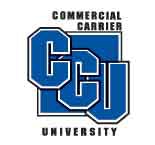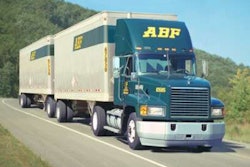
USE FINANCIAL STATEMENTS
The following is an excerpt from How to Use Financial Statements, a manual produced by Commercial Carrier University and sponsored by Castrol. CCU is an educational program produced by Commercial Carrier Journal that includes business management manuals, seminars aimed at improving management skills and a website. For more information, visit www.commercialcarrieruniversity.com.

A basis of accounting is nothing more than a set of rules that the accountant follows in preparing the reports. It tells him when to count certain transactions in the records, and how to do it.
The “when” is the biggest difference between the accrual method and the cash method of accounting. The “how” is the biggest difference between the accrual method and the tax method.
The American Institute of Certified Public Accountants has developed accounting rules over time. Between generally accepted accounting principles, known as GAAP, and the actual rules established by various professional and regulatory boards, there’s a set of practices to help all companies report profit and loss in basically the same manner. This allows for apples-to-apples comparisons between companies.
For companies with publicly traded stock, the financial statements are the only real measuring sticks for investors. Inaccuracies or inconsistent practices lead investors to make the wrong decisions, and then lead them to the courthouse. To keep companies and their managers honest, the Securities and Exchange Commission and the AICPA require all companies to report profit and loss in the same manner. These rules frequently are referred to as GAAP. Accountants must comply with these rules and disclose in their reports when they are violated — or risk losing their licenses.
Even privately held companies must follow most of these rules. Thus, your accountant gets mighty nervous if you suggest — knowingly or unknowingly — a treatment or practice of accounting that breaks the rules.
Accrual basis means that a transaction is recorded when it happens, regardless of when cash actually changes hands. Consider how you might treat the revenue from a single haul. The accrual basis records the event when the haul is completed. The accountant enters the revenue on the P&L and logs an accounts receivable on the balance sheet. When the cash finally arrives, there is no further effect on the P&L. But the balance sheet changes, as accounts receivable is reduced and cash is increased.
Thus, the accrual basis “matches” revenues and expenses in the same period. You record your revenue when your hauls are completed, whether or not the money is received during that period. Likewise, you record your expenses when you incur them. Some you pay in cash, some you might owe as accounts payable.
Most companies use accrual basis, especially as they grow. That’s because banks and other lenders typically require you to report under the accrual basis in the loan agreements you sign.
The bigger the loan, the more lenders have to lose, so the more they insist that you tighten your accounting practices. For loans of $1 million to $3 million or larger, lenders often require a review statement by an accounting firm. Since reviews (and audits, too) require the accountant to list any departure from GAAP or accrual, you must move to full accrual-basis accounting at that point.
Cash basis means that you don’t record a revenue or expense item until you receive or write the check. Continuing our example, if you use cash-basis accounting, you don’t record anything when you complete the haul unless, of course, the shipper or receiver pays on the spot. When the check arrives, you record it on the P&L as revenue and on the balance sheet as cash. Few companies use the cash basis to keep their books, and there are lots of reasons not to do it.
First, it doesn’t give a clear picture of real profit or earnings in a given month or year. Because it doesn’t match expenses with revenues, using the cash basis can lead to poor business decisions. What looks like a profit can really be a loss. And what’s deposited into your checking account does not equal your profits.
Second, your bank may not allow you to use the cash basis; it wants to know what you’re earning or losing, and the cash method isn’t a good indicator of that.
Third, the Internal Revenue Service may not allow you to use it. They want you to report on the accrual basis, which doesn’t let you manipulate income as easily as the cash basis.
Tax basis means that the rules of the IRS are used in deciding how to record transactions. Essentially, your business’s P&L mirrors that of your tax returns. For most companies, this is a modified version of the accrual basis. Rarely, a company might use a tax basis based on the cash basis. Businesses that do generally are very small; many leased owner-operators use it.
If your company’s annual financial statements are presented on the tax basis, it’s probably because your bank has consented to the practice as a way to save you money on accounting fees. Your accountant saves time and effort if he uses the same basis of accounting for your published financial reports as he does for your tax return.
The main difference between the accrual and tax bases is how you calculate depreciation. In addition, sometimes tax rules won’t let you deduct an expense in the same period that you record it under accrual-basis reporting. This means your accountant may have to maintain two sets of numbers, but that’s really not as hard as it sounds, given the capabilities of modern software packages. But it still takes time, and to save on accounting fees, you might elect to have your reports prepared on the income tax basis of accounting.









